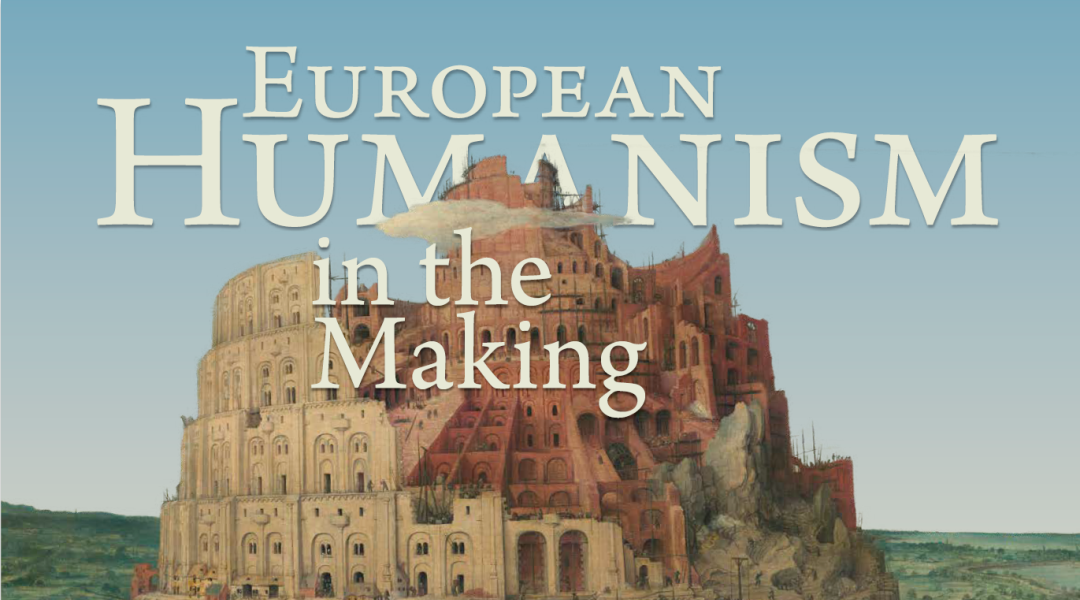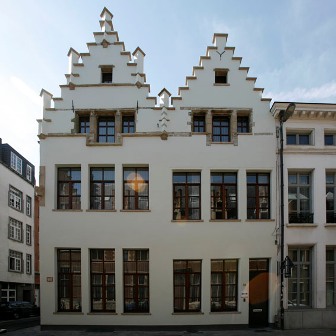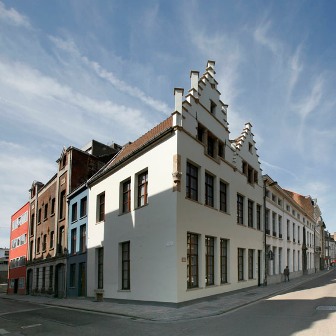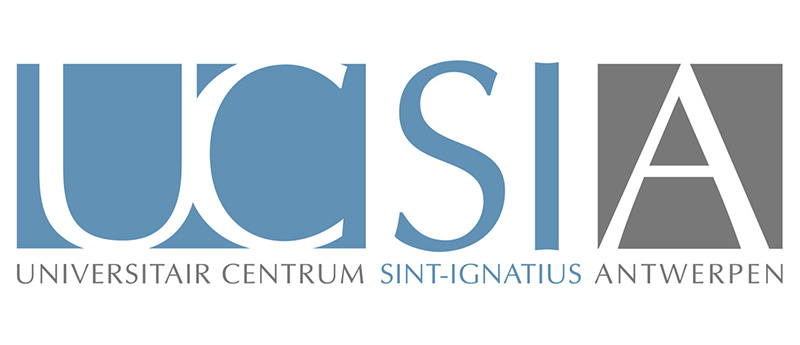
European Humanism in the Making
FUCE Summer School
From 3 till 7 July 2023 UCSIA organized the fourth edition of the international Summer School on ‘European Humanism in the Making’ of the European Federation of Catholic Universities (more information on former editions and the general programme is to be found here).
The summer school was hosted by LUMSA University on their campus in Palermo, Sicily. It was attended by 25 bachelor students from different disciplines and various countries. They engaged in classes in the morning (on European identity, literature, science and religion, social thought and citizenship), workshops and field trips in the afternoon and public lectures in the evening. This has allowed them to envisage Europe from various perspectives and to confront and deepen their vision of Europe (check their impressions in the video’s below).
Two public lectures were open to a wider audience and could be attended online (see registration ‘My Europe’ with student panel below).
Conflicting Memories between East and West and the Future of Europe
Public opening lecture on Monday 3 July 2023 by Peter Verovšek, Assistant Professor in History and Theory of European Integration at the University of Groningen in The Netherlands
While the accession of the first post-communist states to the European Union (EU) in 2004 seemingly reunited the continent after 45 years of division, new political fault-lines soon emerged. Peter Verovšek argues that the divergent understandings of nationalism, sovereignty and democracy in Europe at the start of the twentieth century – most often captured with the distinction between liberal and ‘illiberal’ democracy – are rooted in collective remembrance.
Whereas memory cultures organized around the defeat of National Socialism in 1945 emphasize overcoming nationalism, the protection of fundamental human rights and the constraining of popular sovereignty, those organized around communism and its fall in 1989, interpret nationalism as a source of liberation, the importance of majoritarian democracy and the inviolability of popular sovereignty. While the divergences between these memory cultures are often abused by political leaders in the present, they build on real experiences that simply cannot be ignored.
Collective memories of crucial ruptures, including Europe’s age of total war and the fall of communism, have played a key role in the development of the European Union and the European project more generally.
However, since the accession of the first new post-communist member states in 2004, it has become increasingly difficult for Europe to find a unifying narrative of memory that can ground a commitment to a common set of values.
Peter J. Verovšek is Assistant Professor in History and Theory of European Integration at the University of Groningen in The Netherlands. Until last year he was affiliated to the University of Sheffield. He studied Government and German as an undergraduate at Dartmouth College. He then conducted research on the continuing effects of the memories of World War II in the politics of the former Yugoslavia as a U.S. Fulbright Scholar (2006-07), before receiving his MA (2008), MPhil (2010) and PhD (2013) in Political Science from Yale University. After completing his doctorate, he spent three years as Lecturer on Social Studies at Harvard University (2013-16), where he also served as co-founder and co-chair of the European Union Study Group at the Minda de Gunzburg Center for European Studies. He is a critical social theorist interested in the interconnection between democracy, capitalism and the nation-state. Working within international political theory, his work to date has focused on how socially mediated collective memories serve as resources for political innovation in the aftermath of broad historical ruptures. His book ‘The European Rupture: A Critical Theory of Memory and Integration in the Wake of Total War’, examines the role that the collective memories of the two World Wars played in the development of the European Union.
MYEurope
Panel debate on Thursday 6 July 2023 with students participating in the summer school moderated by Peter Hanenberg, Professor for German and Culture Studies at Universidade Católica Portuguesa in Lisbon, Vice-Rector for Research and Innovation and Director of CADOS, Católica Doctoral School.
Once again, Europe and mainly the European Union seem to be in a crisis. In a certain sense, Europe has always been in crisis. Europe’s crisis seems to be Europe´s mode of being. More than ever, it is necessary to debate experiences, fears and hopes concerning Europe, trying to find out which will be the future of a project in which unity and diversity come together.
Bringing in perspectives from very different angles and backgrounds, the panel joins young students from all over the continent who will present and discuss their view on Europe in the making. These young people might not be experts in a technical sense. However, without these young people and without their commitment any future project necessarily has to fail. In the end, we all have to think and consider what would be MyEurope.
Peter Hanenberg is Professor for German and Culture Studies at Universidade Católica Portuguesa in Lisbon and Vice-Rector for Research and Innovation and Director of CADOS, Católica Doctoral School. He was guest lecturer at the Universities of Bamberg (Germany), Galway (Ireland) and Minho (Portugal), from 2006 to 2010 President of the Portuguese Association for German Studies, coordinator of the research group on Cognition and Translatability at the Research Centre for Communication and Culture (CECC) at Universidade Católica Portuguesa (UCP), Lisbon and between 2012 and 2020 director of the Center. Between 2016 and 2019 he served as a Vice-dean of the Faculty for Human Sciences at UCP. His research focuses on the relation between Cognition and Culture and on the literary representation of the Idea of Europe.
Testimonials
How did the participants experience the summer school? And why should you sign up for the next edition in Lille in 2024? Hear what they have to say!
Revisit last years’ public sessions
A Propos Medea
Today, the world is coming in droves to Europe’s doorstep. This puts our European culture in a different perspective. In her talk at the FUCE Summer School, Isabel Capeloa Gil rereads Euripides’ 'Medea' in a new global and multicultural light. She takes us from global Europe to post-Europe and back.Watch the recording...
MYEurope debate
The students at the FUCE Summer School discussed their views on Europe and its future in the MYEurope panel debate moderated by Peter Hanenberg.Watch the recording...
Waning Europeanness
Historian José Miguel Sardica takes us on a journey through European history. The European founding fathers built a ‘safe haven’ to oppose and avoid more wars and totalitarian regimes (1914-1945). As the memory of the darkest European period is fading, Europe seems to drift apart once again. What are the current threats and how can we cope with them?Watch the webinar...
MYEurope
Once again, Europe seems to be in a crisis. More than ever, it is necessary to share experiences, fears and hopes concerning Europe, trying to find out what will be the future of a project in which unity and diversity come together. In this debate moderator Peter Hanenberg invites students from all over the continent to present and discuss their views on Europe in the making. These young people might not be experts in a technical sense. However, without them and without their commitments, any future project necessarily has to fail.Watch the webinar...

UCSIA
Koningstraat 2
B-2000 Antwerpen
info@ucsia.be
Tel. +32 (0)3 265 49 60
Voorlopige locatie tijdens de renovatiewerken:
Blindestraat 14, 2000 Antwerpen

